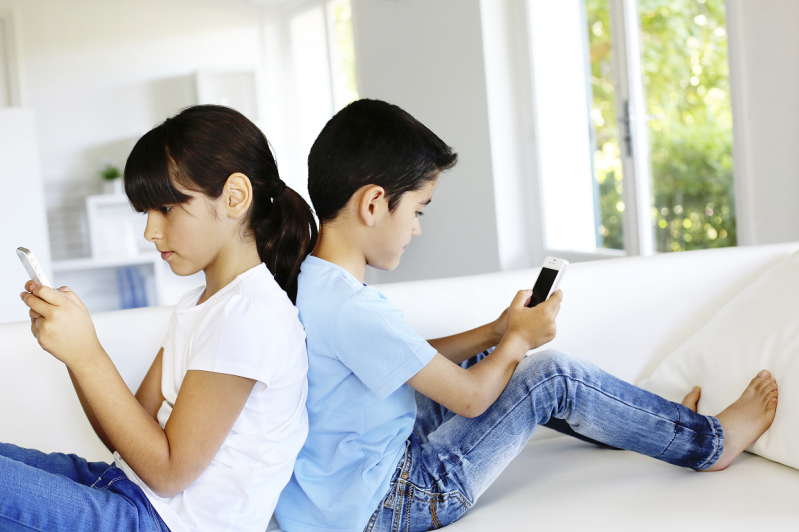
Many children under age five own their own smartphones and tablets, and they often use the devices without any supervision or help from their parents, a small U.S. study suggests.
While the results - based on surveys of parents in 350 households in Philadelphia - aren't nationally representative and the study didn't measure the impact of heavy technology use on the children, the findings highlight "the pervasive nature of digital exposure," among very young children, co-author Dr. Matilde Irigoyen of Albert Einstein Medical Center in Philadelphia said by email.
Nearly half of babies in the study used mobile gadgets daily before they reached their first birthday, and by age two more than three-quarters of children did so, according to the study published today in the journal Pediatrics.
Parents are generally advised to avoid screen time before age two because it's thought to interfere with learning and language development, noted Dr. David Hill, chair of the council on communications and media for the American Academy of Pediatrics.
These recommendations predate the invention of smartphones and tablets. Even though television exposure at an early age has been linked to impaired language skills, the evidence around any benefits or harms from mobile games and apps is less clear, Hill, who wasn't involved in the study, said by email.
"Parents should know that any claims they hear about kids learning from mobile devices are not backed up by solid science," Hill said.
"Will a few minutes with a screen here or there damage their children's development? Probably not. But when those screens start to interfere with face-to-face interactions, practicing executive function, and healthy sleep, then they may pose real problems."
For the current study, Irigoyen and colleagues surveyed parents of children aged six months to four years, who received care near the end of 2014 at a pediatric clinic in a low-income neighborhood.
At age four, half the children had their own television and three-fourths had their own mobile device. It wasn't clear if the parents bought children new smartphones and tablets or gave them hand-me-down devices.
On average, children spent 45 minutes a day watching television, 27 minutes viewing shows or videos on a mobile device, 22 minutes using apps, and 15 minutes playing video games on a gaming console.
Most parents often let their children play with mobile devices to do chores, and many also turned to the gadgets to occupy kids and keep them calm in public places, or during errands. About 28 percent of parents used a mobile device to put their child to sleep.
Shortcomings of the study include its small size and its reliance on parents to accurately recall and report on their children's use of smartphones and tablets, the authors acknowledge.
Parents also need to understand that all apps, like all television shows, are not created equal, said Dr. Dimitri Christakis, director of the Center for Child Health, Behavior and Development at Seattle Children's Hospital.
Video-calling apps like Skype, for example, can help children develop and maintain relationships with parents, grandparents or other close relatives who are too far away to visit in person, said Christakis, who wasn't involved in the study. Electronic books, too, might help children get more reading time with parents.
"Skype with the grandparents shouldn't be counted the same as leaving a child alone to play Grand Theft Auto," Christakis said. "Parents should be very mindful of what kids play, and for how long."
SOURCE: http://bit.ly/1l3Jkql Pediatrics, online November 2, 2015.






